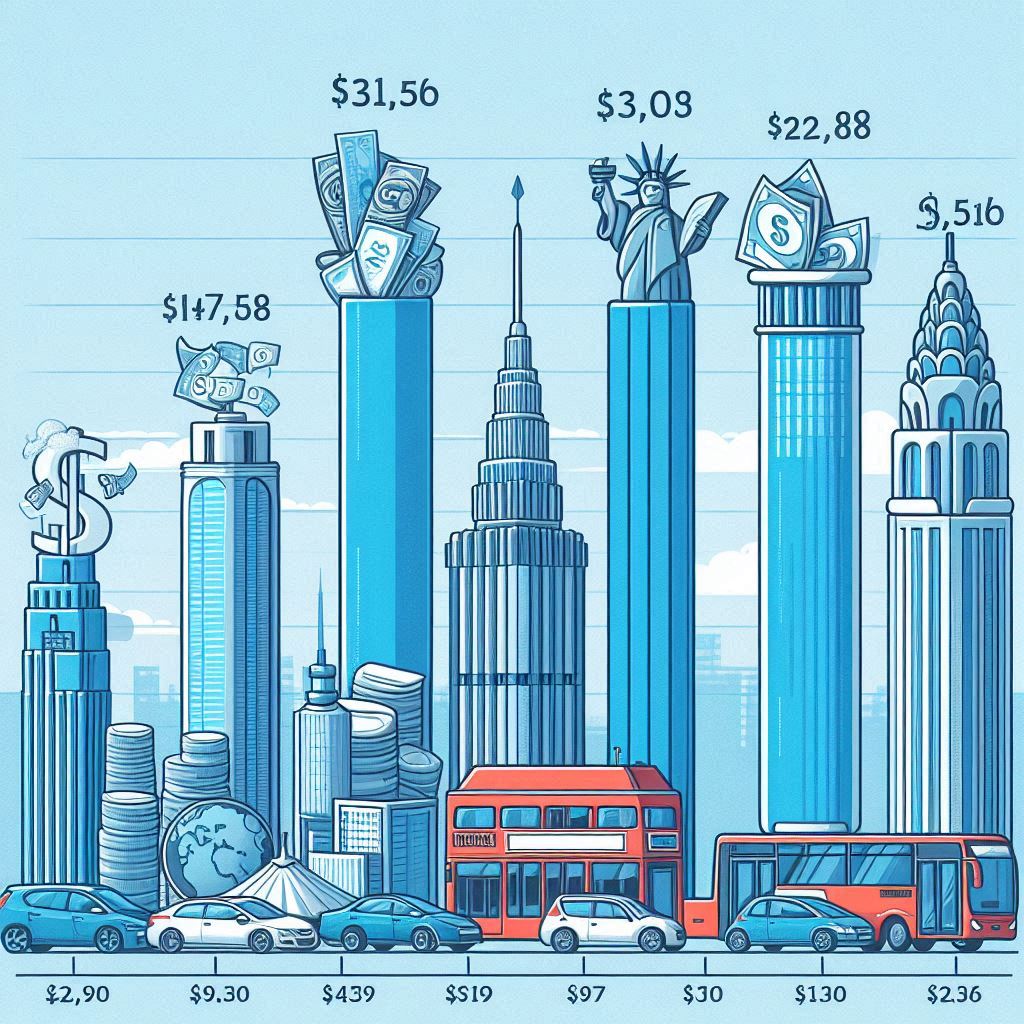Living in Mongolia may be an affordable and rewarding experience, especially for individuals looking for adventure and a distinctive cultural immersion. Mongolia often has a cheaper cost of living than many Western nations, however, exact prices might vary based on region and personal lifestyle choices. To guarantee a financially secure living, it’s necessary to conduct adequate study and make appropriate plans, taking into consideration expenditures for accommodation, transportation, medical care, schooling, and other necessities.

This article will examine the numerous facets of living expenditures in Mongolia, offering information on transportation, lodging, healthcare, necessities, and general way of life.
Accommodation costs
The location and kind of house have an impact on the expense of housing in the country. Rental costs are often greater in Ulaanbaatar, the capital city than in more rural places. It will cost more to rent an apartment in the city center than it will to live in the suburbs or on the outskirts. While comparable apartments outside of the city center can cost between $200 and $500 per month, one-bedroom rentals in the city center can often vary from $300 to $700.
Food and grocery expenses
Mongolian food is renowned for its robust and wandering flavors. Although dining out at neighborhood eateries, or “guanz,” might be reasonably priced, cooking at home is usually more economical. Prices for groceries are affordable in Mongolia, particularly for staple foods like meat, dairy, and vegetables grown nearby. Depending on food choices and tastes, a family of four may spend $200 to $400 a month on groceries.
Transportation costs
In Mongolia, private automobiles, taxis, and buses make up the transit network. Bus trips cost between $0.30 and $0.50, making public transit comparatively inexpensive. Taxis are also an option; the cost varies based on the location and distance. Transportation expenses should include the additional costs associated with driving a car in the country, such as gasoline, insurance, and servicing.
Healthcare and insurance
Although public healthcare is available in Mongolia, the quality of care might differ, especially in rural areas. There are also private medical clinics accessible; they come at a premium cost but offer superior treatment and shorter wait times. It is recommended that expatriates obtain comprehensive health insurance that provides coverage for both normal and emergency medical expenditures. The cost of medical coverage in Mongolia varies according to the plan, the insurer, and the individual.
Utilities and internet
Utilities such as heating, water, and power are also reasonably priced in the country. Depending on location and consumption, monthly rates for a modest flat might vary from $50 to $100. In cities, internet services are generally accessible, with costs varying according to the provider and connection speed. An internet connection might run you anything from $20 to $50 a month on average.
Education
Mongolia boasts a well-established educational system with different degrees of access to both public and private institutions. Citizens are entitled to free public education, however, non-citizens may be required to pay tuition at private or foreign institutions. The monthly expense of schooling in the country varies based on the curriculum, grade level, and school. It can range from $200 to $1,500.
Entertainment and recreation
Numerous leisure pursuits are available in Mongolia, such as hiking, exploring the breathtaking scenery, and immersing oneself in the traditional nomadic way of life. Depending on the region and personal tastes, entertainment, and leisure activities might cost different amounts. While certain activities, like visiting national parks, could need an entry price, there are many inexpensive or even free choices available for festivals and natural wonders.
Budgeting and saving money
In Mongolia, financial security is mostly dependent on saving and budgeting. Individuals may guarantee a solid financial future by carefully controlling their spending and saving aside money for the future. Making a monthly budget and setting aside particular amounts for needs like housing, food, and transportation is a useful tactic. It’s also a good idea to keep a close eye on your expenditures and find places where you can cut back. People in Mongolia may firmly take charge of their finances and work towards reaching their long-term financial objectives by using these practices.
A crucial element of budgeting and financial conservation in Mongolia is establishing achievable savings targets. It is advised to set aside a certain portion of your monthly income for savings; to guarantee significant savings over time, aim for at least 20%. This can be accomplished by using higher-interest savings funds or automating savings via immediate deposits. Through disciplined saving and cutting back on frivolous spending, people may establish a strong financial base and be ready for unforeseen costs or future investments.
You may also find these articles helpful
Cost of living in Denmark – full guide
